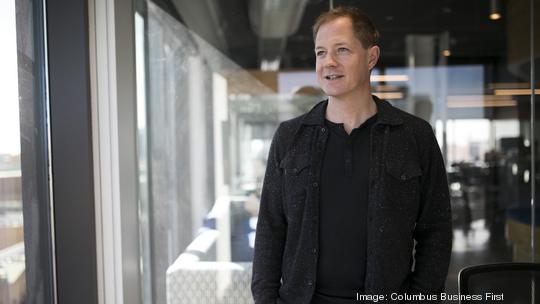
After 2021's record-shattering year for U.S. startups, which saw year-over-year venture capital investments nearly double and mega deals of $50 million or more reach never-before-seen heights, 2022 has been a different story for startups.
Instead of VC investments, it's layoffs that are on the rise.
Startups and tech firms across the world have laid off more than 71,000 workers this year, according to Layoffs.fyi, a site that tracks public reports of startup layoffs. In the U.S., tech firms have fired some 37,000 workers, according to Crunchbase News, which is also tracking layoffs in real time.
Downsizing has hit tech firms both large and small. Public companies like Netflix (Nasdaq: NFLX) (450 layoffs across two rounds of cuts), Robinhood (Nasdaq: HOOD) (1,000 employees over two rounds), Groupon (GRPN) (500 employees) and Rivian Automotive (Nasdaq: RIVN) (800 employees) have cut headcount by the hundreds.
Venture-backed growth-stage startups have also felt the squeeze, like Columbus-based Olive, which fired 450 workers, Seattle-based Flyhomes, which cut 20% of its more than 800 employees, and Austin's Homeward, which cut 20% if its reported headcount of 600.
Younger startups haven't been immune to the tech downturn either. Sonar Software, an Atlanta startup that raised a $12 million Series A round last year, cut 40% of its staff. And Haus, a San Francisco beverage startup, cut nearly all of its 30-person team as it prepares to sell itself after being unable to raise its Series A round.
Why startup layoffs are rising
Startup founders who've built businesses and raised capital in the last decade likely haven't experienced a market slowdown quite like this. Investors point to several reasons for the downturn, including rising interest rates, high inflation and a struggling tech stock market that has trickle down effects on venture-backed upstarts.
But if you ask Chris Olsen, the co-founder of Columbus-based Drive Capital, which just raised $1 billion in fresh funds this year, this is far from a repeat of 2008.
"When you look at the recession we’re in now, you ask yourself how scary is this? Is this a 2008 on repeat? And my answer is no, it's not," Olsen said. "There were companies I was involved with in 2008 where you saw revenue plans go from $30 million a quarter down to $3 (million) in a matter of weeks. The customers had vanished. The banks all of a sudden stopped lending, and the investors stopped spending and investing. Capital just entirely seized up.
"That's not happening this time. Our companies continue to largely be on plan. While there might be adjustments, (layoffs) are less than 10%. This is not a full reset."

Olsen said Drive will invest in 15 to 20 startups this year, which will be more than the number of companies it backed in 2021.
And not every company is shedding jobs. Drive's portfolio companies will hire around 5,000 employees this year, he said.
"It's not like everyone has completely hit the brakes here," Olsen said. "I think it's more tepid growth, but it's still growth. And I think the greatest companies in our portfolio are using this as an opportunity to get ahead of their competitors."
Despite the startup layoffs and slowdowns in the industry, tech sector jobs overall remain steady. IT trade association CompTIA, using data from the U.S. of Bureau of Labor Statistics, found the tech industry as a whole gained 12,700 workers last month, and with an unemployment rate of 1.7% in July. National postings for tech jobs surpassed 484,000 in July, which was a slight decrease from the previous month but remains at a near-record level, the group said.
“It continues to be a challenging environment of mixed economic signals," said Tim Herbert, CompTIA’s chief research officer. "The experiences of startups to Fortune 500 bellwethers seem to be all over the map. The pockets of companies struggling with lagging sales or hiring freezes are often countered with companies performing reasonably well or expanding hiring activity. Higher levels of uncertainty tend to result in a laser focus on viable business models, so we can probably expect a further widening of the gap between companies on solid footing and companies with shaky fundamentals.”
Those sentiments were echoed by Troy Vosseller, the co-founder of Wisconsin-based startup accelerator and venture firm gener8tor.
"It's sort of the best of times and worst of times," he said. "There are startups with good fundamentals that have been and will continue to fundraise and grow successfully. There are others that would've been funded on a great backstory, vision and deck a year ago, but aren't anymore."
In the startup world, it's not just companies that are navigating uncertain waters. Chicago VC firm MATH Venture Partners announced in July that it won't raise a third fund, citing challenges in the "current fundraising environment." MATH raised a $46 million second fund in 2019. It has made 72 investments, 50 of which are still active.
How long startups can prepare for this ongoing slowdown depends on who you ask. Olsen said he's telling Drive's portfolio companies to prepare for two years, with a starting point beginning October 2021. And as valuations come back down to earth, and quality companies reveal themselves in a down market, now is when Drive is looking to place its bets.
"Now is the time when you want to be making investments," Olsen said. "This is when the best businesses are made."







